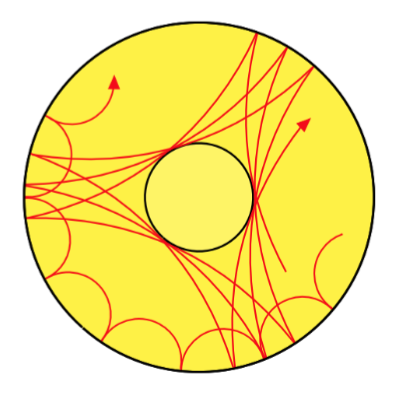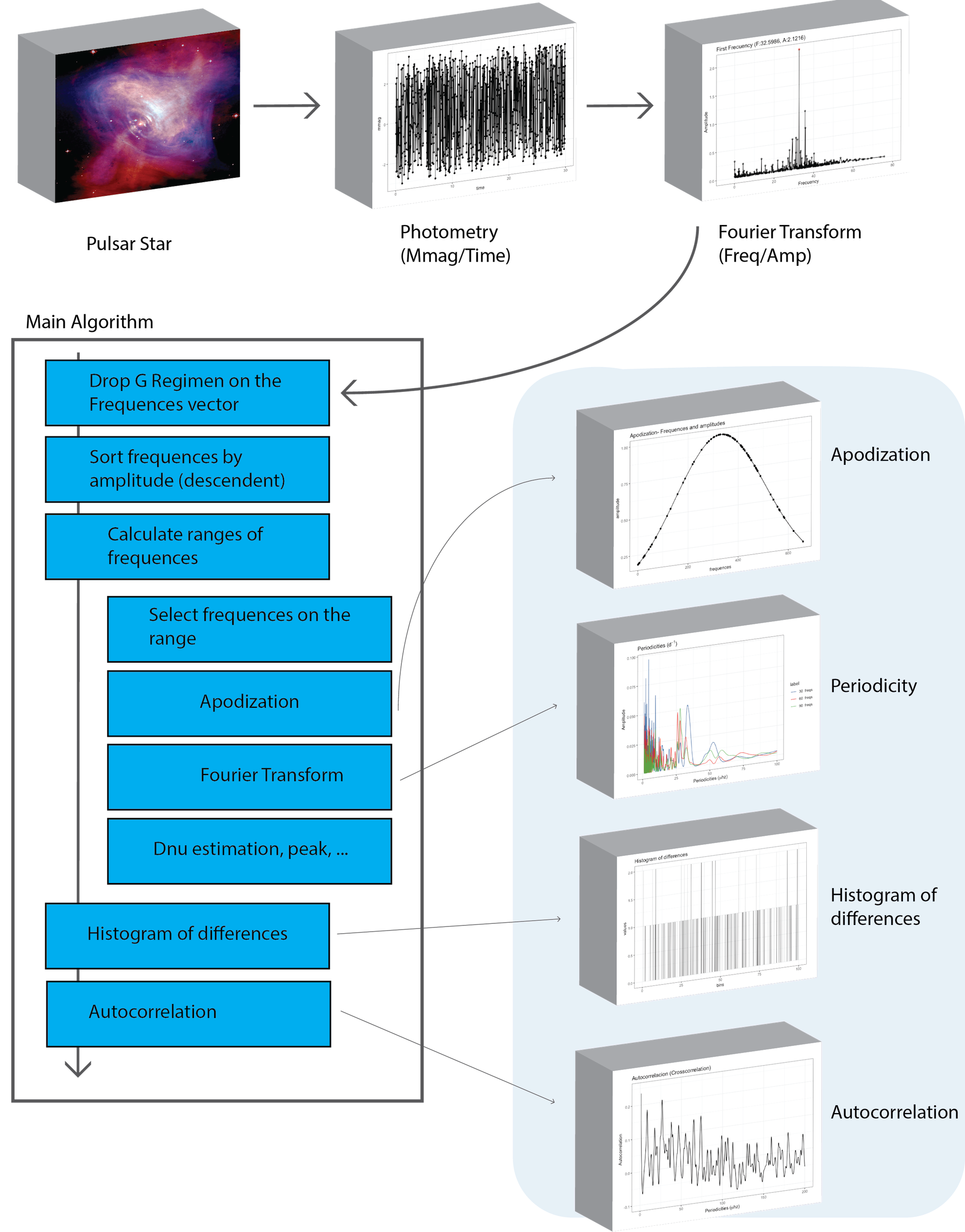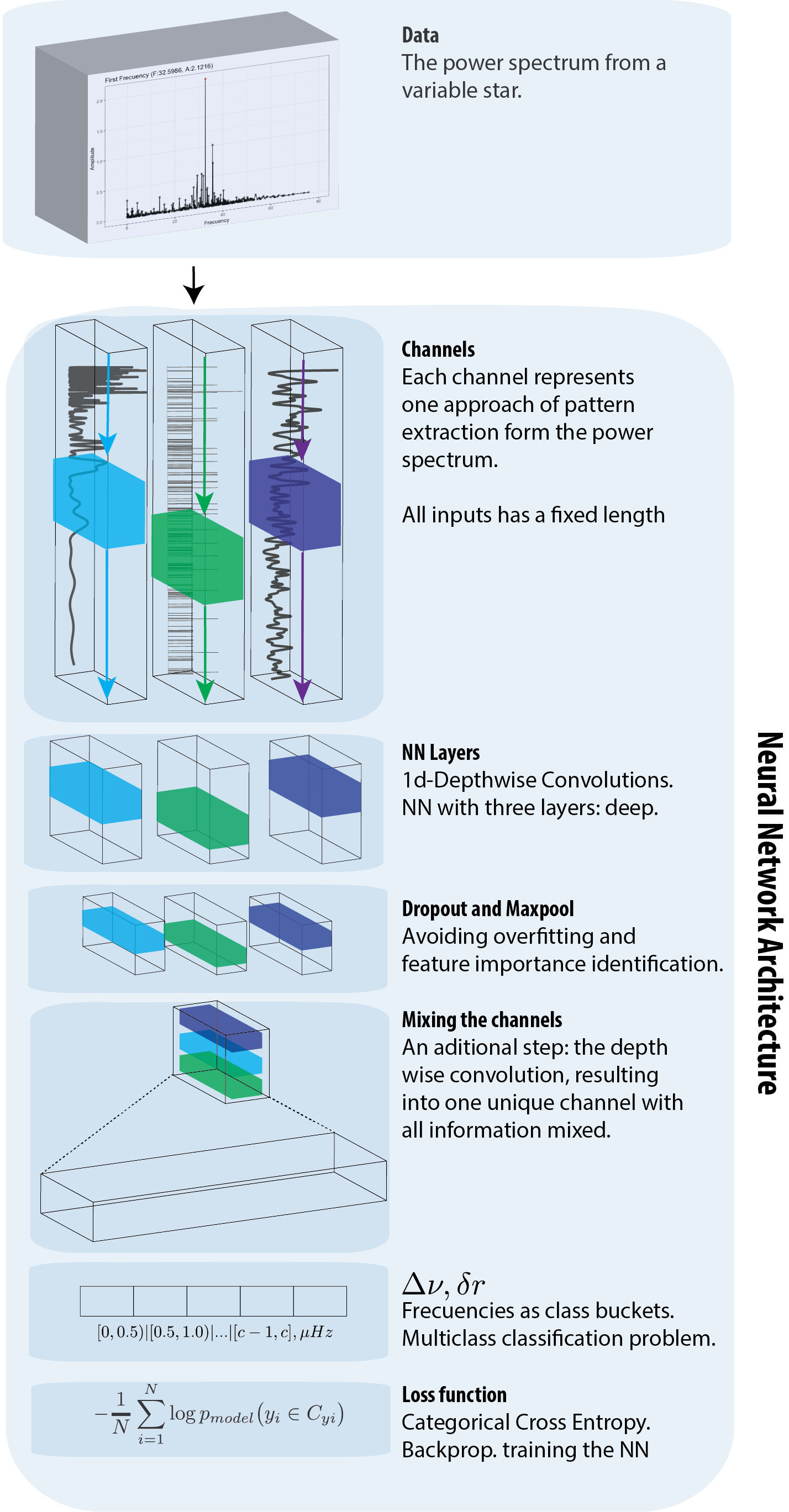README.md
In rmaestre/variableStars: Efficient software to study patterns on variable stars.
Introduction
Variable Star package provides the main funtions to analized patterns on
the oscilation modes of variable
stars.

All the code is based on these two papers:
Installation
install.packages("devtools")
library(devtools)
install_github("rmaestre/variableStars")
** Note for Windows users **
We strongly recommend to use The Microsoft R Open & MKL R
distribution as R distribution.
Also, please do not forgive to include the file Makevars.win into
the src project folder with the next content:
CXX_STD = CXX11
PKG_CXXFLAGS = $(SHLIB_OPENMP_CXXFLAGS)
PKG_LIBS = $(SHLIB_OPENMP_CXXFLAGS) $(LAPACK_LIBS) $(BLAS_LIBS) $(FLIBS)
An UI for experimentation with synthetic data is provided
library(variableStars)
runUISynthetic()

Example of use on a pulsar data
Please, find here or
here the main execution of the complete
package procedure.
Main Workflow

(The pulsar in the Crab Nebula is composed by images taken by Hubble
(red) and Chandra X-Ray(blue))
Implementation
All core funcionalities are programmed in C++ using RcppArmadillo
integrated through
Rcpp.
An example of function to calculate all differences between pair of
element using Armadillo C++ library, iterators and std operattions:
// Calculate all frequences differences
int n = frequences.n_elem;
int diagSupElements = n * (n - 1) / 2;
arma::vec diff(diagSupElements); // Number of elements in the sup. diag.
NumericVector::iterator it_first, it_second, it_diff;
it_diff = diff.begin(); // output iterator
int countElements = 0;
// Double loop (n^2 complexity)
for (it_first = frequences.begin(); it_first < frequences.end(); it_first++) {
for (it_second = it_first; it_second < frequences.end() & it_diff < diff.end(); it_second++) {
if (it_first != it_second) { // Jump same elements
* it_diff =
std::abs( * it_second - * it_first); // Save absolute difference
if ( * it_diff != 0) {
it_diff++; // Increase pointer
countElements++; // Increase elements
}
}
}
}
// Remove unused memory
diff.resize(diagSupElements - (diagSupElements - countElements));
// Return results
return diff;
}
However, all code can be call from R easily with the next function
result <- process(
data$frequency,
data$amplitude,
filter = "uniform",
gRegimen = 0,
minDnu = 15,
maxDnu = 95,
dnuValue = -1,
dnuGuessError = 10,
dnuEstimation = TRUE,
numFrequencies = 30,
debug = TRUE
)
Deep Neural Networks
This package is also used as feature engineering in Deep Neural Network
application to Dnu and dr
estimation.

rmaestre/variableStars documentation built on April 11, 2020, 11:10 p.m.
Introduction
Variable Star package provides the main funtions to analized patterns on the oscilation modes of variable stars.

All the code is based on these two papers:
Installation
install.packages("devtools")
library(devtools)
install_github("rmaestre/variableStars")
** Note for Windows users **
We strongly recommend to use The Microsoft R Open & MKL R distribution as R distribution.
Also, please do not forgive to include the file Makevars.win into
the src project folder with the next content:
CXX_STD = CXX11
PKG_CXXFLAGS = $(SHLIB_OPENMP_CXXFLAGS)
PKG_LIBS = $(SHLIB_OPENMP_CXXFLAGS) $(LAPACK_LIBS) $(BLAS_LIBS) $(FLIBS)
An UI for experimentation with synthetic data is provided
library(variableStars)
runUISynthetic()

Example of use on a pulsar data
Please, find here or here the main execution of the complete package procedure.
Main Workflow

(The pulsar in the Crab Nebula is composed by images taken by Hubble (red) and Chandra X-Ray(blue))
Implementation
All core funcionalities are programmed in C++ using RcppArmadillo integrated through Rcpp. An example of function to calculate all differences between pair of element using Armadillo C++ library, iterators and std operattions:
// Calculate all frequences differences
int n = frequences.n_elem;
int diagSupElements = n * (n - 1) / 2;
arma::vec diff(diagSupElements); // Number of elements in the sup. diag.
NumericVector::iterator it_first, it_second, it_diff;
it_diff = diff.begin(); // output iterator
int countElements = 0;
// Double loop (n^2 complexity)
for (it_first = frequences.begin(); it_first < frequences.end(); it_first++) {
for (it_second = it_first; it_second < frequences.end() & it_diff < diff.end(); it_second++) {
if (it_first != it_second) { // Jump same elements
* it_diff =
std::abs( * it_second - * it_first); // Save absolute difference
if ( * it_diff != 0) {
it_diff++; // Increase pointer
countElements++; // Increase elements
}
}
}
}
// Remove unused memory
diff.resize(diagSupElements - (diagSupElements - countElements));
// Return results
return diff;
}
However, all code can be call from R easily with the next function
result <- process(
data$frequency,
data$amplitude,
filter = "uniform",
gRegimen = 0,
minDnu = 15,
maxDnu = 95,
dnuValue = -1,
dnuGuessError = 10,
dnuEstimation = TRUE,
numFrequencies = 30,
debug = TRUE
)
Deep Neural Networks
This package is also used as feature engineering in Deep Neural Network application to Dnu and dr estimation.

Add the following code to your website.
For more information on customizing the embed code, read Embedding Snippets.
